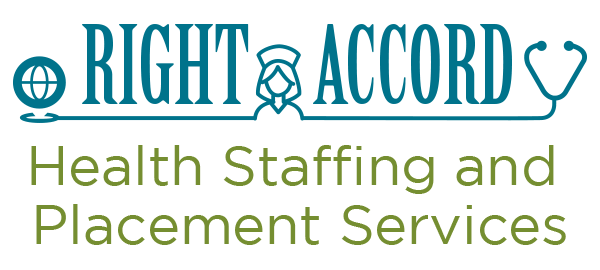Nursing is a noble and demanding profession that requires dedication, compassion, and resilience. However, the relentless pace and emotional toll of caregiving can sometimes lead to burnout.
In this direct and informative blog post, we will provide a comprehensive guide for nurses on avoiding burnout, focusing on practical strategies and self-care to maintain well-being while delivering exceptional patient care.
Understanding Burnout
Burnout is a pervasive issue in the nursing profession, characterized by physical, emotional,
and mental exhaustion. Recognizing the signs and causes is the first step in addressing and
preventing burnout.
Signs of Burnout:
● Persistent fatigue and exhaustion.
● Decreased motivation and interest in work.
● Increased irritability and frustration.
● Emotional detachment and a sense of cynicism.
Common Causes:
● High workload and staffing shortages.
● Emotional strain from dealing with patient suffering.
● Lack of control over work environment and resources.

Strategies to Avoid Burnout
Maintaining a balance between the demands of nursing and personal well-being is essential. Here are practical strategies for nurses to prevent burnout:
1. Self-Care Practices:
● Prioritize regular breaks and meal times during shifts.
● Incorporate mindfulness and relaxation techniques, such as deep breathing exercises, into daily routines.
2. Establish Boundaries:
● Learn to say no when additional tasks exceed your capacity.
● Set clear boundaries between work and personal life to avoid carrying stress home.
3. Effective Time Management:
● Prioritize tasks based on urgency and importance.
● Delegate responsibilities when appropriate to distribute the workload.
4. Utilize Support Systems:
● Foster open communication with colleagues to share experiences and challenges.
● Seek support from supervisors or employee assistance programs when needed.
5. Continuous Education:
● Stay updated on the latest nursing practices to enhance skills and knowledge.
● Attend workshops or seminars on stress management and resilience.
6. Physical Well-being:
● Maintain a healthy diet to support energy levels.
● Incorporate regular physical activity to reduce stress and promote overall well-being.
7. Emotional Expression:
● Find healthy outlets for expressing emotions, such as journaling or talking to a trusted friend.
● Consider joining support groups where nurses can share experiences and coping strategies.
8. Reflective Practice:
● Engage in reflective practices to process challenging situations.
● Identify positive aspects of patient care experiences to counterbalance stressors.

Addressing Work Environment Factors
Nurses can play a proactive role in influencing work environment factors that contribute to burnout.
Advocacy for Adequate Staffing:
● Collaborate with colleagues to advocate for appropriate staffing levels.
● Report concerns to supervisors regarding staffing shortages that impact patient care.
Effective Communication:
● Foster open communication channels with supervisors to address concerns.
● Participate in team meetings to discuss challenges and propose solutions.
Training on Coping Strategies:
● Encourage workplaces to provide training on effective coping strategies and stress management.
● Advocate for access to resources that support mental health, such as counseling services.

Nursing is a demanding yet deeply rewarding profession. By prioritizing self-care, establishing boundaries, and addressing work environment factors, nurses can navigate their careers with resilience and avoid burnout.
Recognizing the signs of burnout and implementing proactive strategies are crucial steps in promoting the well-being of nurses and ensuring the continued delivery of high-quality patient care.
As nurses play a vital role in the healthcare system, their well-being is not just an individual concern but a collective responsibility to sustain a healthy and
compassionate workforce.
Conclusion
Nursing is a demanding yet deeply rewarding profession. By prioritizing self-care, establishing boundaries, and addressing work environment factors, nurses can navigate their careers with resilience and avoid burnout.
Recognizing the signs of burnout and implementing proactive strategies are crucial steps in promoting the well-being of nurses and ensuring the continued delivery of high-quality patient care.
As nurses play a vital role in the healthcare system, their well-being is not just an individual concern but a collective responsibility to sustain a healthy and
compassionate workforce.
Let’s Get Started
Ready to become a US licensed nurse? Let us help you get started! Visit our website to learn how you can begin your journey as an American RN today.
In my previous Blog, I talked about the 3 Steps on Applying for Nursing Job in the USA. Check the link if you haven’t read it yet.
But if you’re interested to watch the full detailed 3-part videos in advance, here is the way to register and get your exclusive access:
 About the Author
About the Author
Rosemarie Tamunday Casanova, RN, BSN, MHA – CEO
I have been a nurse for over three decades and have worked in various settings, including long-term care facilities, teaching hospitals, and trauma centers. Over the years, I have held several critical care positions and even earned a master’s degree in Health Administration. My journey in entrepreneurship began in 2000 when I co-founded a staffing and recruitment agency with my partner, Health and Technology Professionals.
After relocating to Florida, I established my own Home Care Agency and have been operating it successfully for over a decade. Despite our success, I have always been aware of the ongoing need for registered nurses in the US. This led us to reignite our recruitment services and assist international registered nurses in finding employment in the United States.




